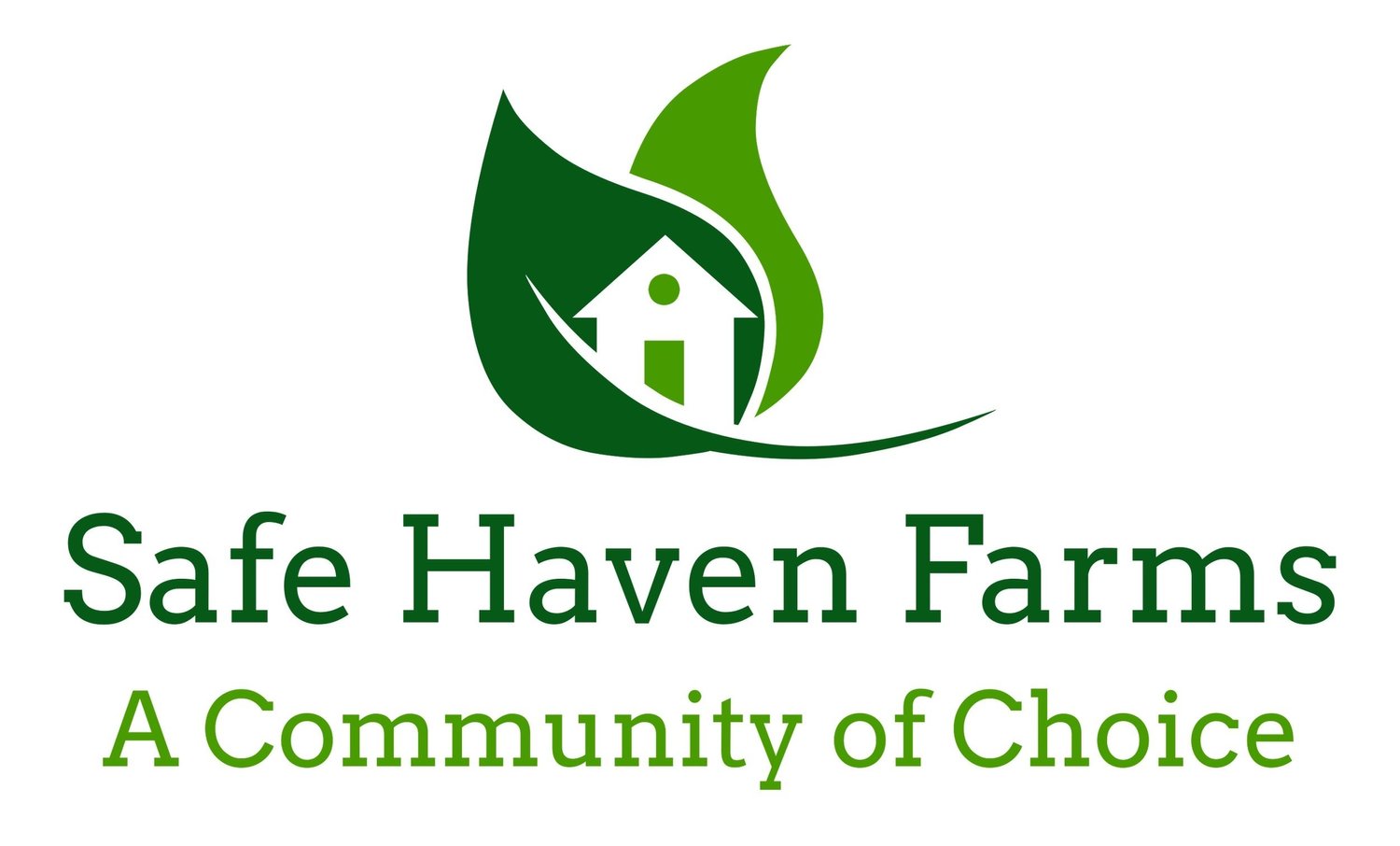Many people, both with and without autism, choose farm life over city or suburban life. For many with autism, characteristics of a farm environment offer compelling benefits over alternative residential and work settings. These include:
A quiet and peaceful environment -- especially valuable to those with auditory sensitivities
Freedom of movement -- in the safe farm environment, away from traffic, crime, strangers, etc., individuals with autism, who often lack danger awareness, are free to move safely over a large area with reduced need for support staff. Many of these same individuals are unable to safely venture outside in urban environments without support staff.
Immediate and always-available access to calming activities -- such as hiking, tending to gardens, riding bikes, and interacting with animals. For many individuals, the ability to engage in these activities by simply walking out the front door provides much greater access than in urban settings where the need for a driver and a car or van ride to reach a place where such activities are possible both delays and limits access to them. For many, living in urban areas further limits choices because with limited staffing one person cannot go somewhere without others in the house or apartment having to go too, whether they want to or not.
Community -- the close knit community that forms around farms welcomes individuals with autism and allows them to relax, be themselves, be accepted, and experience human connections many are unable to achieve in more urban environments. One resident at Safe Haven had previously lived in a house in town, where she physically lived closer to more people but was completely isolated: in many years there, neighbors only spoke to her a few times and never invited her over. At Safe Haven over 80 people showed up to celebrate her birthday!
Therapeutic activities -- such as caring for animals, tending vegetable and flower gardens.
Intrinsic rewards -- many individuals with autism have worked in structured workshops and similar environments. These activities can have benefits, such as skill building, but for many individuals activities in such environments, like menial assembly work, are simply a way to pass the time without a clear understanding of what is being produced or who will benefit from it. Many farm activities, on the other hand, provide clear and understandable intrinsic rewards: "I prepared the ground, planted the seeds, tended the garden, picked the vegetables, and now I will eat them."
Relative freedom from man-made irritants -- while irritants such as fragrances in cleaning products and laundry detergents, off-gassing chemicals from plastics, carpets, paints, and fire-retardant additives in so many products have been produced and distributed in such quantities that they exist everywhere, many exist in lower concentrations in natural environments. These chemicals affect all of us, but for many with autism the impact can be more pronounced, as can the benefit of living in a more natural environment.
Opportunities to grow -- activities and daily interactions help to develop current skills and teach new ones, promoting independence, enhancing self-esteem.
The rhythms of nature and the seasons -- For most of human existence the only environment was the natural environment. Today many of us spend most--or all--of our lives in buildings, cities and other man-made environments. When we do find time to be in natural environments most of us find the experience relaxing and restorative. We feel better, sleep better, wake more refreshed. Individuals with autism experience this same contrast, and for many the difference is more pronounced and the benefit of natural environments is greater.
Increased access to fresh, organic, healthy foods -- Individuals with severe disabilities living in urban areas can face many challenges accessing fresh, healthy foods. On a limited budget, many find the healthiest foods out of reach financially and are forced to choose less-healthy processed foods more often. Food deserts are another problem. These are geographic areas, often in parts of urban areas more affordable housing can be found, where fresh and nutritious food is hard to obtain, particularly for those without a car. In these areas, local grocery stores simply do not stock much in the way of fresh, nutritious food because relatively few in the local area can afford it. Individuals with severe disabilities and a limited housing budget who choose to live in an urban setting can find themselves in a food desert with limited access to fresh, healthy foods. On a farm, these foods are available in abundance, often with higher quality than that which is available through commercial food supply chains.




